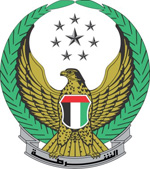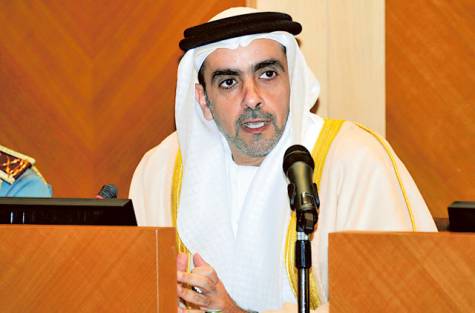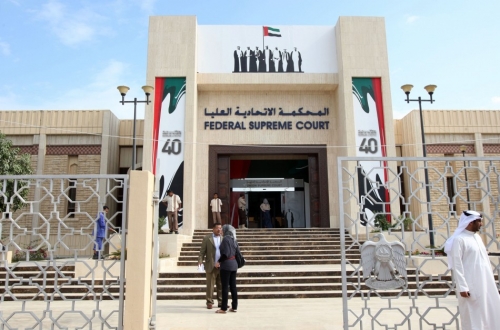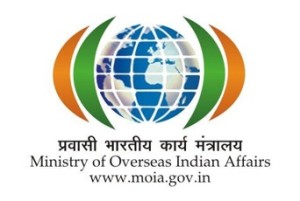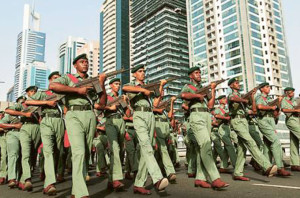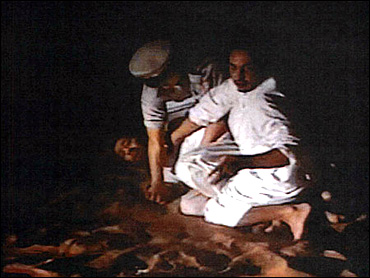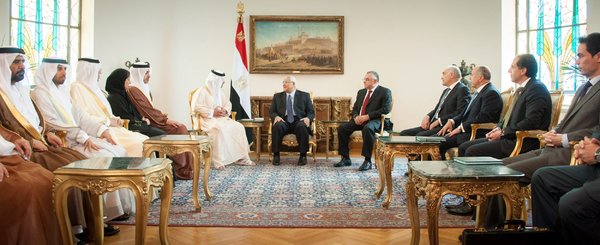![[Cartoon: Ahmed Abdulla Abdul Khadir, a policeman from Abu Dhabi Police in plain clothes, is seen here, amidst the shameful looting operation”]](http://www.judgmentforsale.com/blog/wp-content/uploads/2015/08/jabir-case-abu-dhabi-police-looting-450.jpg)
[Cartoon: Ahmed Abdulla Abdul Khadir, a policeman from Abu Dhabi Police in plain clothes, is seen here, amidst the shameful looting operation”]
“Marking the 20th Anniversary of the ‘Abu Dhabi Police-Looting’ in Abu Dhabi, United Arab Emirates”
Abu Dhabi: Shop burgled by a policeman in plain clothes, US$ .4m worth money and valuables looted!
Statement on the occasion of the 20th Anniversary of Abu Dhabi Police-Looting in Abu Dhabi, UAE 1995 – 2015
New Delhi 15 August, 2015: ‘Reparation Law’
‘Download the true story of ‘Abu Dhabi Police-Looting in Abu Dhabi’ in PDF (Size: 415 kb)’ [Cartoon: Ahmed Abdulla Abdul Khadir, a policeman from Abu Dhabi Police in plain clothes, is seen here, amidst the shameful looting operation”. – The Apex Court of Abu Dhabi Case N0.188/1996. Also view his ‘companion Emirati landlord’, published in another Journal.]
Ever heard of a victim marking and celebrating the 20th anniversary of the gravest disaster in his life? It’s the tragic drama of the ‘Judgment Creditor’, in real life. He is not celebrating it with cheers, but with agonizing memories of the nightmare of the disaster which shattered all his fortunes and pushed him to a state of complete derailment of his enviable physical, mental, financial and social well-being; and made him to live a lost life for all the years that followed.
Regrettably, the credit goes to ‘the Executive Branch of Abu Dhabi’, who set ablaze the destruction, by issuing an extremely “Fraudulent Misrepresentation” to deport the ‘Judgment Creditor’ from that country. Fraudulent misrepresentation occurs when one makes representation with intent to deceive and with the knowledge that it is false; allows for a remedy of damages and rescission. Had the judicious judgment of the Apex Court of Abu Dhabi in absolute terms in favour of the Judgment Creditor been executed in time, his agonies could have been abated two decades back!.
The apparent inaction by ‘the Government of India’, despite the specific directives and orders of the Delhi High Court, and the serious failures and inadequacies to comply with statutory obligations on the part of ‘the Ministry of External Affairs (MEA)’ has also to be blamed in this regard.
The victim, the ‘Judgment Creditor’ was an investor in Abu Dhabi, his ‘Business Assets’, contracting and trading firms, stood valued at a minimum of One Hundred Million U.S. Dollars when the dreadful tragedy took place at the prime of his life. The ‘Judgment Creditor’ is forced to mark this twentieth anniversary of ‘Looting and Extortion’ by the Abu Dhabi police, in Abu Dhabi, United Arab Emirates (UAE), due to the Non-execution of the country’s ‘Landmark Judgments’.
Read the shocking story of police looting, the bizarre twist in the case of police extortion in Abu Dhabi, United Arab Emirates (U.A.E)
“Shop burgled by Abu Dhabi police in plain clothes, US$ .4m worth money and valuables looted” – a real-life story:
Abu Dhabi, UAE; Thursday 26th October, 1995
The expatriates being robbed of their wealth and valuables and exploited by local people pretending to be cops is not at all sensational news in the UAE. But in this true incident under report which took place on Thursday, 26th October, 1995 the policeman who played the lead role in looting was ‘a real police officer who was working in Abu Dhabi police department’.
The victim, in the incident was a high earning engineering expert and investor, deeply committed to his profession with his three major business establishments including ‘Engineering, Contracting and Trading’ in Abu Dhabi, UAE.
A brief background of the story
On behalf of his principal company, the ‘Premier General Contracting Establishment’, the contractor had signed a business contract with an Emirati, ‘Mr Hassan Saeed Hassan’, covering a Nine Storied Building proposed to be leased out for a sum of 10,80,000.00 UAE Dirhams (AED 1.08million) Per Annum.
When a dispute arose with Mr Hassan Saeed, the contractor, on the basis of legal advice, instituted a Civil Suit in Abu Dhabi Court for settling the issue. The ill-intention of the local was that, he wanted to cancel the lease deed when the restoration of entire building was over. The conspiracy on the part of Hassan Saeed, to avoid paying debts was one of the important and thrusting points in the civil suit.
The Honourable Judge of the Civil Court took a decision in favour of the contractor. Consequently, Hassan Saeed got annoyed and insisted the contractor to withdraw the lawsuit unilaterally.
Scene 1.
Ahmed Abdulla Abdul Khadir, a policeman in plain clothes from Abu Dhabi police (who haven’t been disclosed his identity), along with Hassan Saeed Hassan (the Emirati, accused in the civil case, who has already been warned by the Civil Court against his wrongful motives) came to the contractor’s office.
The policeman in plain clothes, who had come prepared and was shouting and rotating an iron rod of one meter length in one hand; and on the other, a chained handcuff. Hassan Saeed was walking close to him. They have entered the first floor of the office where the contractor was alone at the time.
The policeman enquired about the original documents of the building contract and job orders between Hassan Saeed and the contractor which the contractor refused to disclose.
Scene 2.
The contractor was threatened with dire consequences unless he withdrew the lawsuit. The contractor was not willing to yield to such illegal and unjust demand, which amounted to extortion.
There upon, the contractor was subjected to the most inhuman treatment with painful physical injuries and otherwise.
They wanted to grab and destroy the related documents of the contract from him by force because an ‘Interim Order’ of the Court was against Hassan Saeed. In this attempt, the entire office was ransacked, drawers opened, files thrown.
The telephone connection in the office was snapped. The policeman in civil dress beat the contractor harshly with a chained handcuff; the chain was rounded on victim’s neck and pulled around. He paid no heed to the humble requests of the victim.
The policeman forcefully broke open the office locker with the heavy iron rod in his hand. At this juncture, some of the cash, worth above AED 3,50,000 which was kept for the distribution of wages for employees was found by them.
Scene 3.
So much of money! The policeman’s eyes bulged out in wonder. He looked at his Emirati friend as if he never expected there’s such a large amount of money. The currency blurred their eyes. All in a hurry, both of them grabbed the bunches of currency, and hurriedly stuffed into their pockets. In their hurry and perplexity, part of the currencies spilled over the floor of the cabin.
In the meantime, the contractor’s younger brother arrived at the office with lunch. As he arrived the contractor asked him “to close the door and call the police”. The policeman in plain clothes managed to get out of the office with the stolen money and bundled documents.
The Emirati too tried to escape from the office of the contractor, with his hands and pockets full, protruding with the stolen money and valuables; however, he was unable to leave.
Scene 4.
The Policeman in civil dress was standing outside the office which remained closed. A crowd had gathered around the office. He was holding an iron rod of one meter length in his hand with which he was hitting the door of the office and warning any one from coming near the office and was shouting Indian, Pakistani, Bangali all are thieves and procurers.
At this point of time police patrol team arrived at the spot. They were, in fact, allies of the intruders. This batch of policemen who came responding to the alert of the contractor, immediately hit the contractor and his brother. Their faces had reflections of triumph and cruelty. They were like ferocious animals, beaten both the victims brutally, almost near to death. Then they handcuffed them behind their backs and dragged them out of the office, on through the street, and kicked them into the police car. All these brutal torture and humiliations were happening in front of a large crowd.
The frightening deadly torture continued with shocking brutality throughout the journey as well as in a detention centre and subsequently getting admitted as an unconscious victim to the hospital emergency, Abu Dhabi.
Scene 5. (UAE Torture)
Here is a narration of the haunting memories and the cruel and inhuman torture suffered by the victim, in his own painful words:
“There were four persons present (in plain clothes) when they tortured me in an underground detention centre. I was forced to lay down on the floor by them. My face was close to the floor and my hands still cuffed behind my back. They took out their Arabic turban and rolled it on my entire head and left me to suffocate; then started hitting and kicking on my head with their legs. And then they tried to pull-out my injured finger nails with a plier type nail clipper. Due to this cruel and painful torture, my finger nail were entirely torn apart”. (Full Text: UAE Police Torture’)
[The above narration is not exhaustive but only a pointer to untold miseries, losses, sufferings; the haunting memories of the ‘cruel and inhuman torture’ and social humiliation suffered by the victim; the ‘Judgment Creditor’. He had to undergo extremes of inhuman and deadly tortures from Abu Dhabi Police which no human being could withstand. However, he was spared from death. For more details and updates, please visit the website URL: www.JudgmentCreditor.com/]
Judgments & Orders:
The Legal Court of First Instance of Abu Dhabi :-
It took six months thereafter, for the contractor to have his first appearance in Court. The ‘Duty and Responsibility’ of the authority to protect a Judgment Creditor against the threats of violence was left unattended. The victim was framed a false case, alleging “Using force against Government employee and assault”.
The Legal Court of First Instance of Abu Dhabi found that the victim was innocent, the case (NO. 152/1996) was wholly false, baseless and that it was fabricated by both the plaintiffs, Hassan Saeed Hassan and Ahmed Abdulla Abdul Khadir, the policeman. The Court found that, the Prosecutor was guilty of proceeding against the contractor, who in fact, was a victim of police brutality. The Court acquitted the contractor [and his brother as well] of all the charges levelled against them and directed the authorities to investigate the violent crimes committed by the Policemen and the Landlord such as trespassing, physical aggression, looting etc. (Judgment First Instance 152/1996 dated 10/4/1996)
[The 'Judgment of the Legal Court of First Instance' has never been executed or investigated; instead the authorities were trying their best to hide the shameful act of the police. The prosecution taken-up the case to the Apex Court, the Supreme Court of Abu Dhabi, UAE].
The Apex Court of Abu Dhabi:-
The case came up before the Apex Court, comprising the three-judge panel. The prosecution found to be grossly negligent and blamed for its criminal involvement in the case. The contractor was granted bail on the filing of the appeal. However, despite the bail and sureties he was not released from the prison.
During the next hearing, the Policeman dropped his claim from his complaint with a declaration attested by the Notary Public. The landlord, Hassan Saeed followed the suit and admitted his guiltiness. The judges threw out all those papers and had cautioned them of the serious nature of their crime which calls for long term of imprisonment apart from financial penalties and confiscations.
“The Court praised the properness of the behaviour and courage of the victim and concluded that the victim is innocent; rather ‘a martyr. The appellate review highlighted the culpability of the policeman and emphasized the notoriety of his actions and violations of person’s rights. “It further reiterated the condemnation of prosecutor”. The Court ordered immediate release of the victim, ‘restoration’ of victim’s dignity, respect and reminded about the roles and responsibilities of authority towards the victim for reparation for the losses he suffered while pronouncing a ‘Landmark Judgment’.
An excerpt from the Judgment reads as follows:-
“Verily the Islamic Law and the entire Positive Laws have honoured Man and protected his freedom, his honour, his property and his soul. Hence, if a man was killed, while protecting these, he is considered to be a martyr. And limitation of his freedom without any rights is an unforgiving crime and the same is mentioned in the provisions of articles 2 and 3 of the Penal Procedures Code. And it is proved in this case that the policeman along with the plaintiff went to arrest the accused and to limitate his freedom….” (Apex Court Judgment 188/1996 dated 19/5/1996).
“THE ‘LANDMARK JUDGMENTS’ IN THE HISTORY OF UAE”
Having due respect, inspiring loyalty and commitment to Law, the Judiciary of Abu Dhabi, listened to, conducted and decided upon the case precisely in tune with the various provisions prevailing in that country. Download the Judgment:- (PDF Format)
VISIT ARCHIVES:-
Archive – Judgments and documents relating to ‘Jabir Case’
“FRAUDULENT MISREPRESENTATION” - A DIRTY GAME OF THE ‘WILFUL DEFAULTERS’, THE EXECUTIVE BRANCH OF ABU DHABI, UAE!
Instead of honouring the Judgments of the Legal Court of First Instance and the Apex Court, the Supreme Court of Abu Dhabi, and restoring the dignity and respect of the victim as directed therein, ‘the UAE Administration’ chose to deport the victim with “Fraudulent Misrepresentation” of truthful facts, by repeating the same false charge, that a tricky policeman had framed against the Judgment Creditor to blackmail him, (which had been dismissed later on finding it to be false by both the Courts of that country). By quoting the very same false charge to deport the Judgment Creditor (who was also a victim of police brutality), the Executive Branch of Abu Dhabi has not only tarnished the image of UAE in indelible ink; but also made a mockery of the entire Judiciary of that country.
THE SCENARIO BACK HOME, IN INDIA
And back in India, what action was taken by the Government of India?
“Nothing, except a cruel and deliberate betrayal over the past two decades”.
In India, the ‘Legal fight for Justice’ took in very many proceedings before the Supreme Court of India and the High Court of Delhi. Unfortunately, India has not made any diplomatic efforts or given any respect to the orders of Delhi High Court in 1997 and 2007.
The concurring Judgments against Abu Dhabi police from the Highest Court of Abu Dhabi, United Arab Emirates and the ‘Concealment of the Judicial Decisions’ by the administration of that country, and to deport the ‘Judgment Creditor’, were un-challengeable F.I.R. against the Executive Branch of Abu Dhabi, who was duty-bound to compensate the victim in every respect for his physical and mental injury, illegal imprisonment and ill-health due to the near-to-death torture by policemen. In contrast there to, the illegal deportation resulted in the absolute loss of his various ‘Business Establishments’, and he was forced to live a lost life for all the years that followed.
AWAIT RELEASE!
“25 Smart Reasons to take the ‘UAE Judgment Execution Case’ to the International Court of Justice (ICJ)
The Government of India is duty bound to take all necessary measures to enforce the Judgments passed by the Supreme Court of Abu Dhabi, including approaching the International Court of Justice (ICJ) for the settlement of this unique and the most barbaric action perpetrated by the head of a civilized nation, Abu Dhabi, United Arab Emirates, that caused ‘Multi-billion Dollars’ worth of damages to the Judgment Creditor’s business establishments. The ‘Laws Governing the International Community’ do require compliance by the Executive Government, in full measure, with the verdict of the Judiciary; this requirement of law was breached by the UAE Government. (‘Publications’)
Last updated 15th August, 2015.
RERERENCE LINKS:-
- 1) Unique is the case of ‘Judgment Creditor’ – White Paper
- 2) The worst cheating scandal of Abu Dhabi, United Arab Emirates (UAE)
- 3) Real-life Judgment Fraud by the UAE Administration Uncovered!
- 4) Truth and Justice are being nakedly sacrificed for UAE’s Reputation
- 5) ‘Indo-Gulf Reparation Mechanisms’ – Responses, Govt of India
- 6) A Portfolio of UAE Judgments For Sale!
- 7) Articles on Diplomatic Protection 2006
- 8) The International Law
- 9) The Wilful Defaulters!
- 10) Reparation Law
- 11) Publications
- 12) Archives
Thanks Message to the ‘CNN’ for Publishing a Special Feature
Thank you so much for providing us a venue to publish this ‘Special Feature’.
Our Sponsors
* Support the Judgment Creditor: Support Justice; Invest in Justice!
[Outright sale of a Judgment is not envisioned. Funds are proposed to be raised by distribution of shares]. Full Text: “Judgment Enforcement Campaigns Worldwide”
* A challenging opportunity to any brilliant Lawyer(s) in India and abroad to take up and win a Multi-Billion US Dollars worth case and bag huge remunerations!
“Wanted Brilliant Lawyers for Multi-Billion US Dollars worth case”
Feedbacks
* We’d love to hear your Feedback; Speak up for Human Dignity & Justice in the UAE!
Follow Us at Face Book: “Alliance Judgment Recovery”
“CONTACT US” ‘Download the true story of ‘Abu Dhabi Police-Looting in Abu Dhabi’ in PDF (Size: 395 kb)’
* People Likes Us | Follow Us
* Twitter | Follow Us
* Share This



